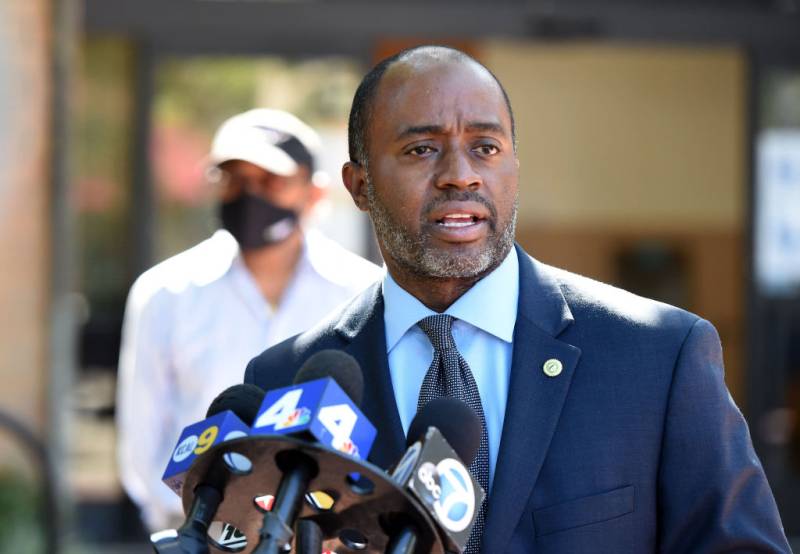What words of advice do you have for the newly elected SFUSD school board members?
I think the best thing they can do is to get some training on what new school board members do and on what it means to be in a governance position. And because the district has been through so much, they have to get real clear on what their responsibilities are for creating a vision for the district both financially and for the academic trajectory of our students.
They need to get out and listen to the people in their communities, especially partnering with parents who are concerned and have a right to be included as partners. So the best thing that board members can do is to train up and to listen to partners, to get some coaching and some mentorship. Because they have to move quickly and they have to make sure they’re making choices that are going to help all the students in the district.
What are some of the school districts where things are working well?
There are some great examples. There are examples in Los Angeles where almost all grades, and the whole eighth grade cohort, has made dramatic gains in reading. San Diego has seen great gains for English learners. A number of districts in the Bay Area have seen success in some areas. But overall I would say that students across the nation have seen this decline in math and reading, and that’s something that we need to make sure we work closely with districts.
We did have a chance to spotlight Berkeley Unified where they have some great programs to promote learning acceleration. They’re doing more tutoring, they’re making more enrichment available during the summer, and they’ve seen some positive impact as a result of their work. Oakland Unified has seen some tremendous success in the area of career technical education, preparing students for the jobs of tomorrow. So there are bright spots, but we’re not going to stop until we see California students as a whole are doing better and are doing well in terms of preparing for the future.
Many families have moved out of the state during the pandemic. What can the state do to keep California students in the classroom, especially in public schools?
I’ve been sponsoring legislation to support programs that I know promote high achievement and that interest our families, like dual-language enrollment schools. When kids learn a second language, they’re more successful academically. For younger kids, it stimulates brain development. And we know that it prepares students for jobs in the future. So we’ll be working to expand our dual-language enrollment programs. And I think seeing high-performing programs like this, like STEM education and others, are going to be the types of programs that help attract families back to California public schools.
What do we need to work on and what are some of the top issues?
I think reading is something that we should continue to work on and I’ve declared that we’re going to make sure that all of our students learn how to read by third grade. That means any student who entered kindergarten this year should be able to read by third grade. We’re providing schools with the resources we think they need to make that happen. We’re providing a grant to school districts of up to $250 million and hiring reading coaches and specialists so that they can work with new teachers and other teachers to learn how to teach reading to our students.
They say that students who can read by third grade are more likely to graduate. Sadly, we see that those who don’t learn to read by third grade are more likely to drop out of school and could end up in the criminal justice system. This is a groundbreaking moment for California, that we’re going to have these reading coaches supporting our students. I think we have to recognize also that students have had a very difficult time. We’ve seen during the pandemic a spike in depression in many students, and that’s why I’ve been working with our governor and with our Legislature. We’ve just secured funding to help us recruit 10,000 counselors to work in our schools.
Filling our employment ranks is going to be an important part of the success of how California schools are going to bounce back. There’s a nationwide shortage of educators, and we’re doing something different to help counter that — we’re offering a $20,000 scholarship in California for anyone who wants to become a teacher or for anyone who wants to become a counselor in our schools.

